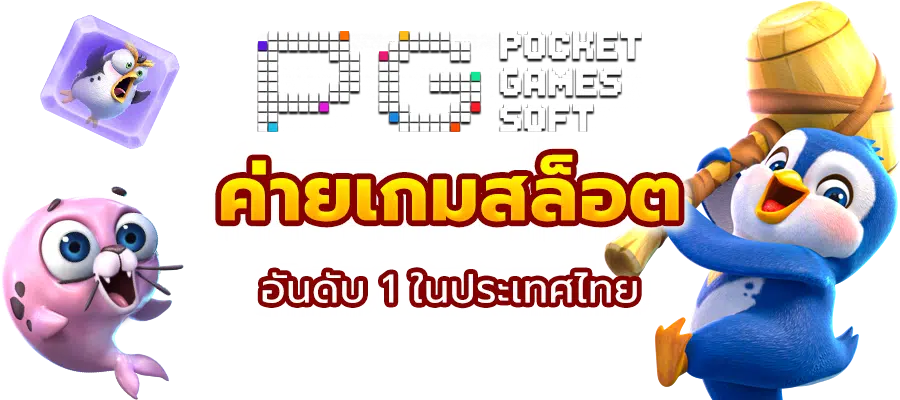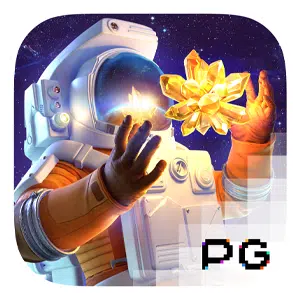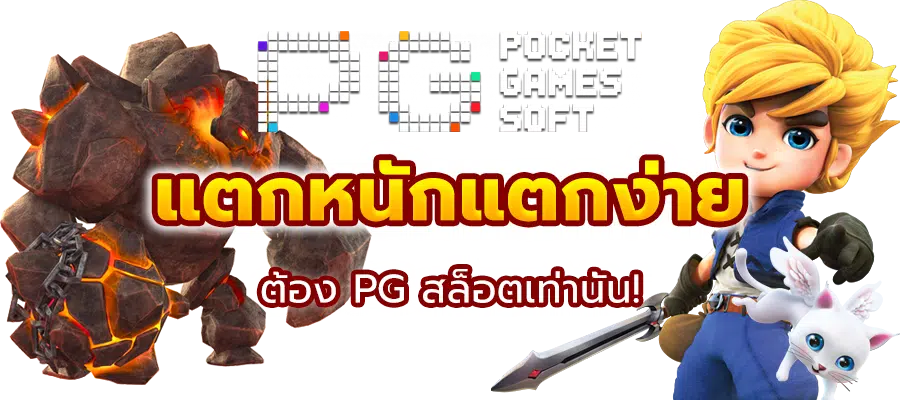สล็อตค่ายดังที่สุดในตอนนี้ต้องยกให้ PG SLOT ก้าวมาเป็นอันดับ 1 แบบไม่ต้องสงสัยกันเลยทีเดียว ด้วยระบบเกมที่ทันสมัย และมีอัตราการชนะที่สูงที่สุดในโลก ณ เวลานี้ FAFA168 เราเป็นผู้ให้บริการ สล็อตpg จากประเทศไทยที่นำเข้าจากเซิร์ฟเวอร์หลัก บริการบนแพลตฟอร์มโดยที่ไม่มีการกำหนด ฝากถอนไม่มีขั้นต่ำ และอัพเดทเกมใหม่ครบทุกเกม
สัมผัสกับประสบการณ์ภายในเว็บ พีจีสล็อต ที่ไม่เหมือนกับค่ายสล็อตที่ไหนในโลก FAFA168 รับประกันถึงความคุ้มค่าเมื่อเข้ามาปั่นสล็อตในเว็บพีจี ด้วยประสบการณ์ของ PG ที่เปิดมามากกว่า 8 ปี นับตั้งแต่ปี 2015 นี่จึงเป็นค่ายเกมที่ทุกคนยกย่องให้เป็นที่ 1 ในปี 2023 และต่อไปอย่างแน่นอน!

PG SLOT หรือที่คนไทยเรียกว่า สล็อตpg เป็นหนึ่งในค่ายเกมชั้นนำระดับโลก FAFA168 พัฒนาโดยบริษัท PGSOFT โดยมีสำนักงานใหญ่ตั้งอยู่ที่อเมริกาเหนือ โดยมีการเปิดตัวครั้งแรกเมื่อปี 2017 ที่งานอีเว้นท์ London ICE Totally Gaming 2017 โดยได้รับความนิยมอยากมาก ณ เวลานั้น โดยเวลาที่เปิดให้บริการทั่วโลกจะเริ่มที่ไตรมาสที่ 4 ในปี 2017
โดยตัวเกม พีจีสล็อต นั้นจะมีความโดดเด่นในเรื่องความหลากหลายในตัวเกม ฉีกกฎของเกมสล็อตออนไลน์ทั่วไปอย่างสิ้นเชิง ซึ่งนั่นก็ตรงกับความต้องการของผู้เล่นสล็อตออนไลน์ในประเทศไทย อีกทั้งตัวเกม PG สล็อต นั้นยังมีการอัพเดทภาษาไทยที่เข้าใจง่าย รวมไปถึงอัตราการชนะที่สูงกว่าค่ายเกมคู่แข่งในเวลาเดียวกันอีกด้วย นี่จึงเป็นสาเหตุสำคัญที่ทำให้พีจีนั้นเป็นค่ายเกมยอดนิยมากที่สุดในปี 2023 นั่นเอง
เนื่องจากตัวเกมของ PG SLOT นั้นมีมากกว่า 1,000 เกม ซึ่งหากผู้เล่นต้องการเล่นทั้งหมดนั้นจะเป็นเรื่องที่ยาก เราจะมาทำการรีวิวเกมดังจาก สล็อตpg ที่มีอัตราชนะที่สูง โดยอ้างอิงจากเรท RTP ที่มีมากกว่า 80% ขึ้นไป และมีการปรับเบทได้โดยที่ไม่มีขั้นต่ำ








วางใจทุกการใช้งานได้อย่างเต็มที่เมื่อเลือกใช้บริการด้วย ห้องเกม PG SLOT ของเรา FAFA168 บนเว็บไซต์ในที่ ต้องบอกเลยว่าสามารถ ครบจบในทุกวงจรให้กับนักพนันในการเข้าใช้บริการกันได้ทุกประเภทด้วยนั่นเอง ต้องบอกเลยว่าเป็นการสร้างสรรค์ผลประโยชน์ที่สามารถให้ ความไว้วางใจกับนักพัฒนาในการเข้าร่วมลงทุนได้จริง
และยังสามารถให้ นักพนันได้ใช้บริการกับประเภทเกม พีจีสล็อต ของเรา บนเว็บไซต์นี้กันได้ในทุกๆ แพลตฟอร์มสำหรับการเข้าใช้บริการด้วยนั่นเอง เพราะว่าองค์ประกอบต่างๆ ในการสร้างสรรค์รายได้ของเราที่นี่ สามารถให้ ความไว้วางใจทางด้านการลงทุนกับนักพนันได้ในทุกๆ องค์ประกอบการเข้าร่วม pg slot เว็บตรง ของเรา ทั้งหมด

เพิ่มคุณภาพความสนุกในการลงทุนได้อย่างเต็มที่ด้วย การใช้ห้องเกม PG SLOT ของเรา บนเว็บไซต์นี้บอกเลยว่ามีให้คุณได้มากกว่าความสนุกกว่าเดิมแน่นอน และยังสามารถ ช่วยให้นักพนันได้มีรายได้เพิ่มมากยิ่งขึ้นในการบริการกับห้องเกม pg slot ทางเข้า ของเราที่นี่ กันได้ในทุกๆ รูปแบบ รับประกันองค์ประกอบในการสร้างสรรค์รายได้ด้วย ห้องเกมสล็อตของเรา บนเว็บไซต์นี้จะสามารถให้ นักพัฒนาได้มีความสนุกกันได้อย่างคุ้มค่ามากๆ แน่นอน สำหรับการเข้าใช้บริการด้วย ประเภทห้องเกม pg slot เว็บใหม่ ของเราที่นี่ ในทุกๆ รูปแบบที่คุณ ต้องการ และยังสามารถให้ ความไว้วางใจในการสร้างรายได้กับนักพนันได้เป็นอย่างดีในทุกช่องทางของเรา กันเลยด้วย
สร้างรายได้อย่างมั่นใจด้วย การใช้งานกับห้องเกม PG SLOT ของเราที่นี่ บอกเลยว่าน้ำมันจะมีโอกาสในการรับรางวัลได้สูงถึง 10 เท่าตัวต่อรอบในการใช้งานกันเลยด้วยนั่นเอง เพราะว่าการใช้บริการด้วย ประเภทห้องเกม pg slot แตกง่าย ของเรา บนเว็บไซต์นี้ในทุกๆ ประเภทนั้นมีตัวช่วยในการซัพพอร์ตลงทุนกับนักพัฒนาทุกท่าน ได้ดีที่สุด
และยังสามารถให้ นักพัฒนาได้มีเปอร์เซ็นต์ในการใช้บริการกันได้อย่างราบรื่นอีกด้วย เพราะว่าการสร้างสรรค์รายได้ด้วย ประเภทห้องเกม pg slot เว็บหลัก ของเรา ที่ดีนั้นนอกจากจะให้นักพนันได้เลือกลงทุนได้ง่ายแล้วยังมีแนวทางการเข้าใช้บริการให้นักพนันได้ศึกษากันได้ในทุกๆ รายละเอียดสำหรับการใช้บริการด้วย
เมื่อคุณเข้าใช้งานด้วย ห้องเกม สล็อตpg ของเราที่นี่ แล้วนะ ต้องบอกเลยว่าควรจะ ต้องทำความเข้าใจกับกติกาในการเข้าใช้บริการบ้านเล็กๆ น้อยเพื่อที่จะสามารถ ทำให้เราได้รู้ว่าเงื่อนไขในแต่ละห้องเกมนั้นสามารถ เดิมพันอย่างไรจึงจะได้เป็นผู้ชนะนั่นเอง
องค์ประกอบการเดิมพันด้วย ห้องเกมสล็อตของเราที่นี่ บอกเลยว่าคุณจะมีอัตราการชนะที่สูงเกินกว่า 80% กันอย่างแน่นอน เพราะว่าการใช้บริการด้วย ห้องเกม ทางเข้าpg ของเราที่นี่ มีตัวช่วยที่จะสามารถ support นักพนันได้ตลอด 24 ชั่วโมงโดยที่ไม่มีการจำกัดใดๆ ทั้งสิ้น
แนวทางการเดินเงินด้วย ห้องเกมสล็อตของเราที่นี่ มีความเหมาะสมในการลงทุนของนักพนันทุกท่าน ได้เป็นอย่างดีมากๆ แน่นอน ต้องบอกเลยว่าการเข้าใช้บริการด้วย ประเภทห้องเกม pgสล็อต ของเราที่นี่ นอกจากจะให้วิธีในการลงทุนแล้วยังสามารถให้ นักพัฒนาได้ใช้งานกันได้ง่ายด้วย เมื่อคุณเลือกใช้เทคนิคการเดินเงินจะช่วยเซฟเงินทุนของคนไม่ให้บานปลายจนเกินไป
ประเภทการเดิมพันด้วย ห้องเกมสล็อตของเราที่นี่ มีโปรโมชั่นจัดเตรียมเอาไว้ให้กับนักพนันได้เลือกรับกันได้ในทุกๆ วัน ต้องบอกเลยว่าทุกโปรโมชั่นของเรา มีโบนัสพิเศษให้นักพนันได้ใช้บริการ และรับกันได้อย่างเต็มที่ในทุกๆ การร่วมสนุกเลยด้วย

สร้างสรรค์การเดิมพันอย่างมั่นใจด้วย การใช้ห้องเกม PG SLOT ของเรา บนเว็บไซต์นี้บอกเลยว่าการันตีความมั่นคง และความมั่นใจที่สูงที่สุด ในการใช้บริการ PGSLOT ของเรา กันได้ในทุกๆ รูปแบบกันเลยด้วย เพราะว่าเป็นตัวช่วยในการลงทุนที่สามารถ ทำกำไรให้กับนักพนันได้แบบไม่มีขีดจำกัดกันเลยด้วย และยังสามารถให้ นักพนันได้รับความชัวร์ในการสร้างรายได้อย่างเต็มที่
ระบบการสร้างสรรค์รายได้ด้วย ห้องเกมสล็อตของเราที่นี่ นั้น ต้องบอกเลยว่าเราได้จัดเต็มกับระบบออโต้ที่สามารถ รับรองในทุกๆ ธนาคารของนักพนันได้ทั้งหมด และยังสามารถให้ นักพนันได้เลือกลงทุนกันได้อย่างสะดวกในทุกประเภทเกมอีกด้วย
ระบบการใช้งานกับห้องเกมสล็อตของเราที่นี่ ได้จัดเตรียมกับฟังก์ชันต่างๆ ที่มีความทันสมัยในทุกรอบด้านโดยที่ไม่มีการกระตุกใดๆ ในการเข้าใช้บริการได้เลยทั้งสิ้นนักพัฒนาจะสามารถ เลือกสร้างสรรค์รายได้กับคุณที่ ต้องการได้ตลอด 24 ชั่วโมง
เดิมพันกับระบบการใช้งานด้วย ห้องเกม PG SLOT ของเราที่นี่ บอกเลยว่ามีความบันเทิงได้อย่างครบวงจรที่นักพนันสามารถ เลือกค้นหารางวัลที่คุณ ต้องการได้ไม่ยากเลยด้วย เพราะว่าเว็บไซต์เกม สล็อตพีจี ของเราที่นี่ เป็นค่ายเกมดัง และยังคงเป็นห้องเกมสล็อตที่มีการอัพเดทเวอร์ชั่นใหม่ให้คุณได้ใช้บริการกันได้อย่างสม่ำเสมออีกด้วยนั่นเอง รับประกันทุกการร่วมสนุกที่คุณ ต้องไม่อยากพลาด
สำหรับการสมัครสมาชิกด้วย ประเภทห้องเกมสล็อตของเราที่นี่ นั้น บอกเลยว่ามีการเลือกเข้าใช้บริการ และติดต่อด้วย ช่องทางต่างๆ ในการใช้งานของเราที่นี่ ได้ไม่ยากด้วยนั่นเอง เพราะสามารถ สมัครสมาชิกได้ผ่านหน้าเว็บไซต์ของเรา โดยตรง
สำหรับการใช้บริการกับห้องเกมสล็อตของเรา นั้น ต้องบอกเลยว่าการเริ่มต้นในการเข้าใช้บริการนั้นสามารถ ทำรายการฝากครั้งแรกได้ด้วย อัตราเงินทุนเพียงแค่ 1 บาทเท่านั้นเอง บอกเลยว่าเว็บไซต์ของเราที่นี่ ไม่มีการจำกัดใดๆ ทั้งสิ้น
ยอดเงินในการเข้าใช้บริการกับห้องเกมสล็อตของเราที่นี่ นั้น ต้องบอกเลยว่าสามารถให้ ความเป็นอิสระในการเข้าใช้บริการกับนักพนันทุกท่าน ได้ทั้งหมดแล้วยังสามารถให้ นักพนันได้เลือกลงทุนกันได้โดยที่ไม่ถูกจำกัดวงเงินการถอนใดๆ ทั้งสิ้น
สุดยอดห้องเกม PG SLOT ของเราที่นี่ ได้รวบรวมประเภทเกมยอดนิยมให้กับคุณได้ใช้บริการกันได้อย่างเต็มที่แล้วจริงๆ ต้องบอกเลยว่าเป็นการสร้างสรรค์ผลประโยชน์ที่สามารถ ทำกำไรให้กับนักพนันได้ไม่ยากด้วยนั่นเอง นอกจากนี้แล้วยังสามารถให้ การบริการเดิมพันกับนักพนันได้อย่างเต็มรูปแบบในทุกๆ องค์ประกอบที่ควร ต้องการ และยังสามารถ เลือกสร้างสรรค์รายได้ด้วย ประเภทลงทุนที่ดีที่สุด